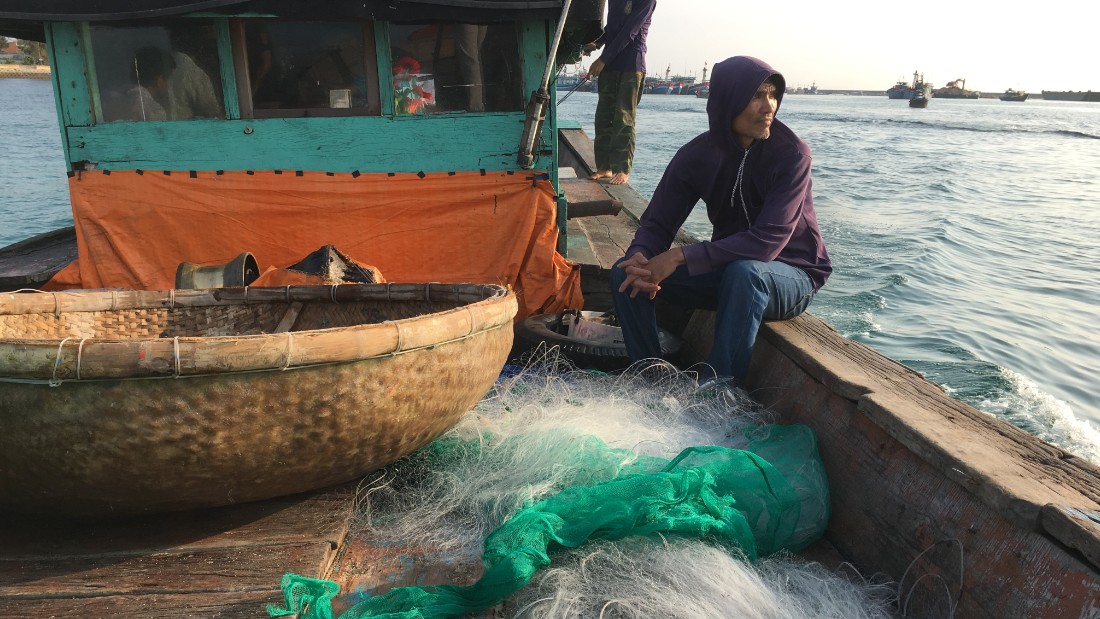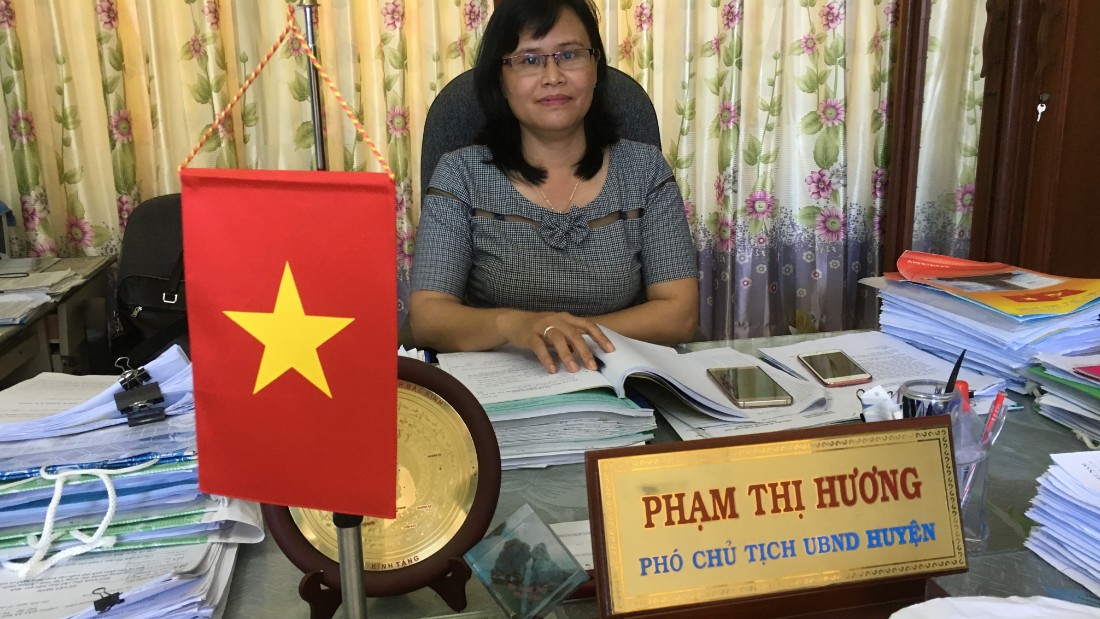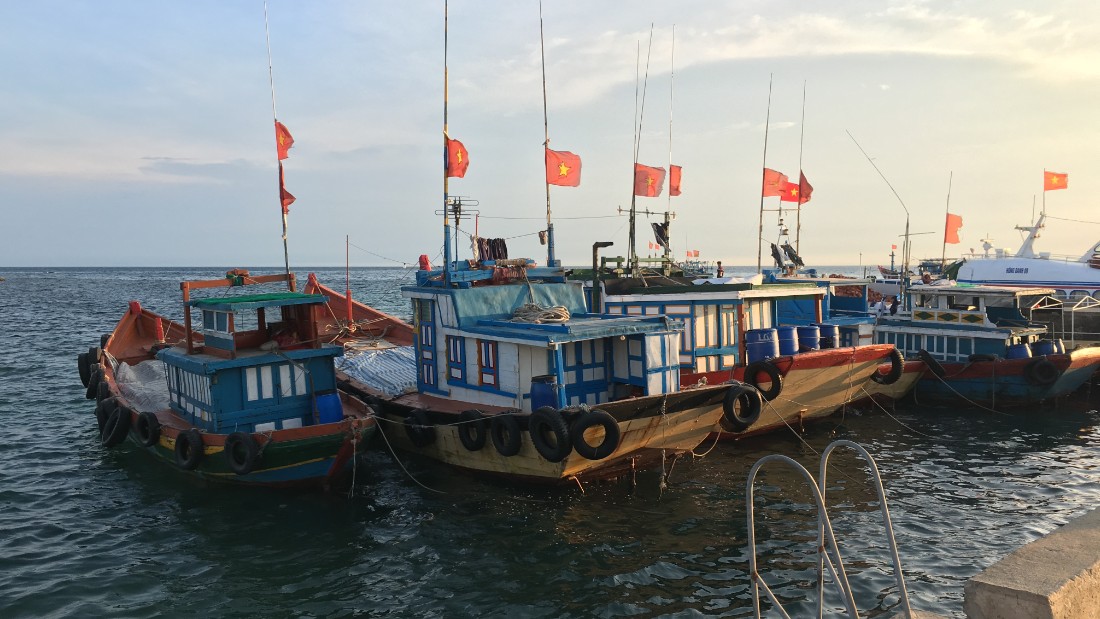Again and again, Vietnamese fisherman, Le Tan, keeps finding trouble out at sea.
Last year, a group of men from a Chinese-flagged vessel chased his boat, catching him and his sons, and threatening them.
“They raided our boat. First they took our fish, then the essential equipment. If they liked it, they took it. If they didn’t, they threw it away,” he said.
He estimated his boat has been targeted four or five times over the past decade.
Once his son was held for three days; he was badly injured after being beaten and tasered at the spine.
“He had to stay home for three months and could not go to work,” Tan told CNN.
Vietnamese authorities believe Tan and hundreds of other fishermen like him have become targets because they operate in the Paracel Islands, disputed territory claimed by Vietnam, China and Taiwan.

They are caught in an international spat over territory in the South China Sea — a clash that’s frayed diplomatic relations within Asia, and sits high on the agenda as U.S. President Barack Obama arrives in Vietnam on Monday.
China says it owns nearly all of the South China Sea, and points to a 1947 map to justify claiming territory that lies hundreds of miles to the south and east of its island province, Hainan.
Many others object to that — with Vietnam, the Philippines, Malaysia, Taiwan and Brunei all offering competing claims.
Fisherman caught in the fray
Located off the east coast of Vietnam, the remote island of Ly Son is just 10 square kilometers (3.8 square miles) and wasn’t connected to the national power grid until October 2014. It is home to around 1,000 fishermen who work in the Paracels, including Tan.
According to the local government, 200 Ly Son fishermen and 17 fishing boats reported being attacked by Chinese vessels in 2015.
China’s foreign ministry says it has no knowledge of Vietnamese fisherman beating beaten or expelled from the area, which it claims as “indisputable” Chinese territory.
Since 1999, China has instituted a summer moratorium on fishing in the South China Sea, saying it protects the sustainability of the industry.
“China has the authority to administer its territorial waters because of our sovereignty,” Chinese foreign ministry spokesperson, Hua Chunying, said in response to a question from CNN.
“As I understand it, China’s maritime authorities have always enforced laws in a civilized manner.”
‘This area belongs to Vietnam’
Despite the risk, Pham Thi Huong, a senior official in Ly Son, said authorities encourage the fishermen to keep going to the Paracels, which she describes as a traditional and crucial source of income for the island.
“By going out to the sea again, they confirm that this area belongs to Vietnam… That is undeniable,” she said.

CNN wasn’t allowed to speak to the Ly Son fishermen without a government minder present. But Vietnam’s national government actively promotes the stories of the Ly Son fishermen and are keen to show them off as examples of China’s aggression.
Authorities support the fisherman with cash payments to replace lost fishing equipment and help pay for medical bills.
Because of their belief in Vietnam’s ownership of the island, regular Vietnamese citizens also contribute money to the fishermen’s cause, according to the President of Ly Son’s Fisheries Association, Nguyen Quoc Trinh.
“This is the force, the motivating force that makes our fishermen feel safe when we go out to the sea,” he said.

Opportunity for United States
Political analysts say China’s assertiveness in the South China Sea has threatened regional players and opened up new opportunities for the United States to build ties in countries like Vietnam.
Over the past few years, China has made strategic moves to back its claim to most of the South China Sea, building man-made islands, adding landing strips and deploying surface-to-air missiles.
The Asia Maritime Transparency Initiative (AMTI) has concluded, based on satellite imagery, that China has created 3,000 acres, or 12 square kilometers, of new land.
Vietnam has also engaged in reclamation activities, but on a smaller scale.
The AMTI estimated Vietnam has created just over 120 acres, or half a square kilometer, of new land.
Before President Obama’s visit, U.S. Assistant Secretary of State for East Asian and Pacific Affairs, Daniel R. Russel, described Vietnam as “a partner in upholding the Law of the Sea and the rule of law in maritime space, in resolving peacefully the tensions and disputes in the South China Sea.”
The Obama administration has repeatedly advocated for such a peaceful resolution to the disputes, calling for a halt in reclamation or militarization of the islands by any country.
The U.S. is also running “Freedom of Navigation” operations — naval patrols or flights through the South China Sea — to emphasize the American position that all nations have a right to transit these waters.
Such activities have angered China, which has repeatedly accused the United States of provoking conflict and jeopardizing stability in the region.
Vietnam, for its part, doesn’t seem upset by the Freedom of Navigation operations.
In January, the Foreign Ministry spokesman, Le Hai Binh, responded to one such operation by saying: “Vietnam respects the right of innocent passage through the territorial sea.”
As reported by CNN
